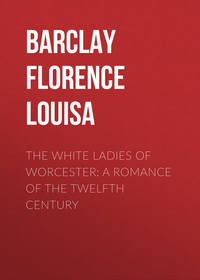Kitabı oku: «The White Ladies of Worcester: A Romance of the Twelfth Century», sayfa 27
Bir şeyler ters gitti, lütfen daha sonra tekrar deneyin
5,0
3 puan
Türler ve etiketler
Yaş sınırı:
0+Litres'teki yayın tarihi:
07 aralık 2018Hacim:
430 s. 1 illüstrasyonTelif hakkı:
Public Domain